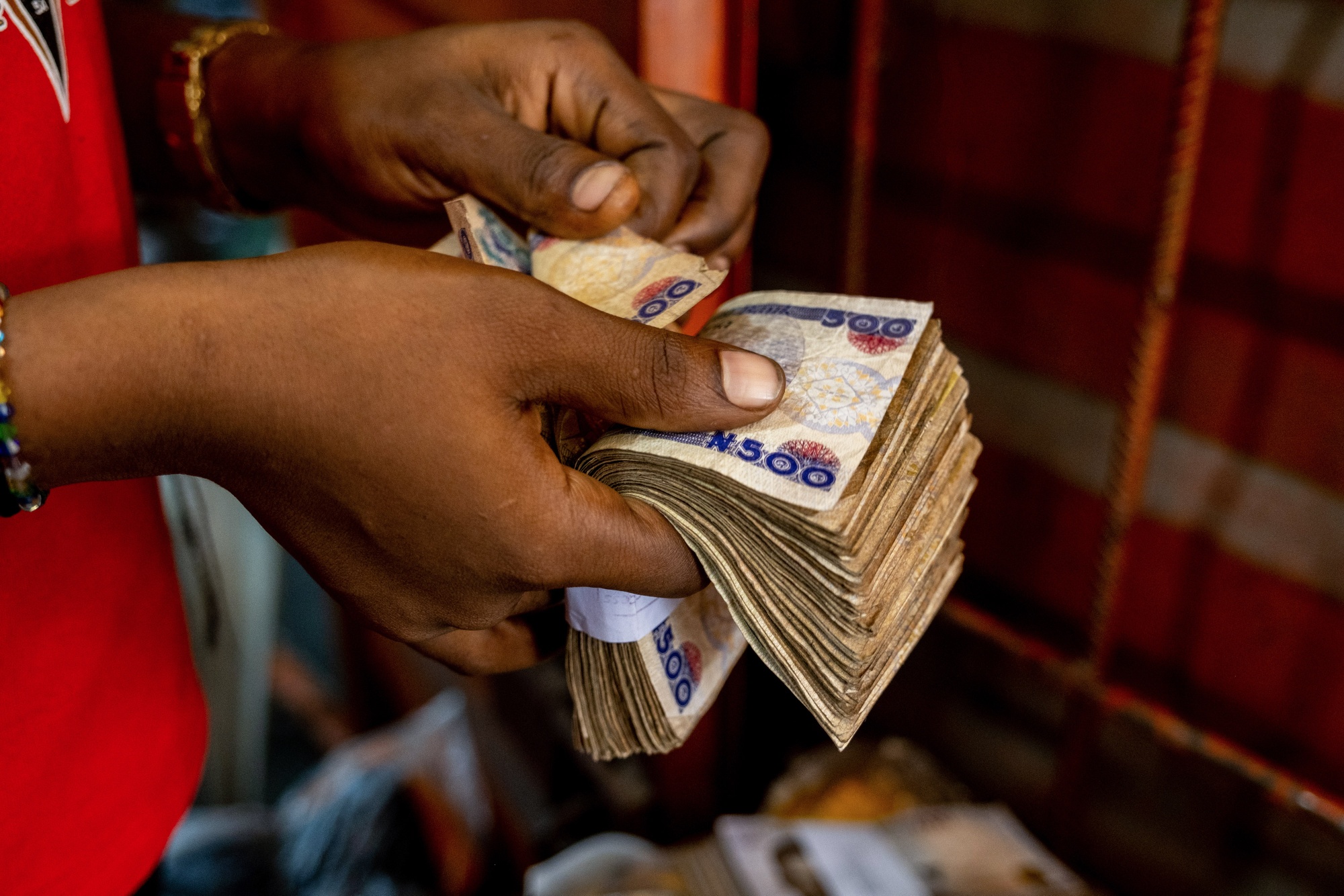The naira fell to new lows on Thursday, depreciating to N1,675.49 per dollar in the official market and remaining at N1,750 in the parallel market, underscoring persistent challenges in Nigeria’s foreign exchange landscape.
FMDQ data revealed that the naira declined by N44.32 from Wednesday’s rate of N1,631.17 per dollar in the official exchange. This depreciation occurred even as foreign exchange turnover climbed from $128.98 million on Wednesday to $166.61 million on Thursday.
Foreign exchange analysts attribute the naira’s continued decline to an imbalance between demand and supply, driven by structural economic issues.
Dr. Adesina Oladipo, an economist specializing in foreign exchange dynamics, explained, “The naira’s depreciation reflects underlying liquidity issues and high demand for the dollar, particularly among importers and businesses relying on foreign inputs. Until there’s a coordinated policy to boost dollar inflows, pressure on the naira is likely to continue.”
READ ALSO: Naira experiences slight depreciation amid U.S. dollar recovery
In the black market, the naira remained stable at N1,750, reflecting a saturation point that some traders believe indicates limited short-term recovery potential. Bolaji Suleiman, a forex trader in Lagos, noted, “There’s a broad consensus in the market that without significant policy interventions, we could see further erosion of the naira’s value.”
Experts are calling on the Central Bank of Nigeria (CBN) to explore ways to attract foreign investments and shore up dollar liquidity.
Dr. Maryam Akande, a financial analyst, remarked, “To stabilize the naira, Nigeria needs stronger investor confidence, supported by sound fiscal policies. The government must create conditions for foreign investments and exports, which could relieve some of the pressures on the currency.”
Market observers caution that if the naira continues its downward trajectory, it could exacerbate inflation and raise costs for consumers, affecting both households and businesses.
With economic growth facing mounting pressure, industry experts stress that policy reforms aimed at boosting dollar inflows and encouraging local production may be crucial in restoring naira stability.

 Football7 days ago
Football7 days ago
 News6 days ago
News6 days ago
 Comments and Issues1 week ago
Comments and Issues1 week ago
 Comments and Issues1 week ago
Comments and Issues1 week ago
 Comments and Issues1 week ago
Comments and Issues1 week ago
 Latest1 week ago
Latest1 week ago
 Comments and Issues1 week ago
Comments and Issues1 week ago
 Health6 days ago
Health6 days ago

